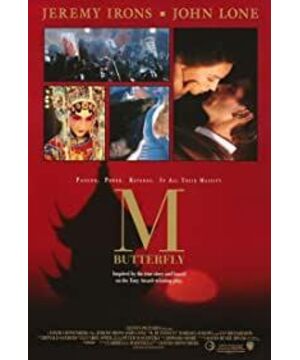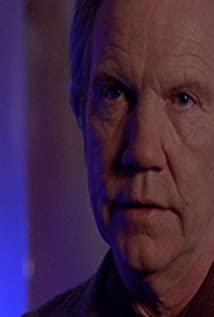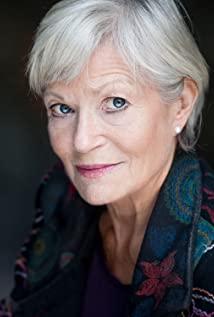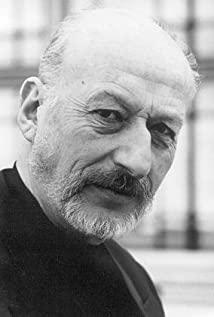René Gallimard is usually translated as Gao Renni. In fact, according to the transliteration, it should be Renni Golima (Glima). The reason for this translation may be to take care of the habits of the Chinese people, or he thought Gao was half a Chinese son-in-law and he was directly registered with a Chinese residence. However, the translation of foreigner's name is meant to be remembered by the Chinese, and it does not matter which word is used. Because there is no absolute definition.
It should be pointed out here that only the name Song Liling was written in the script. As for the three characters in Chinese, it is unknown, the author has not written them. In China, this name is written in several different ways, such as "Song Liling", "Song Liling", "Song Liling" and so on. "Song Liling" has more recognition. This translation method is also good, Juanxiu is refined, and it directly points out her identity-a beautiful actress. Used in the work is really "people are as they are".
I finally found the answer in a still not long ago. The Broadway stage play "M.Butterfly" starring Francis Jue is clearly marked with the three characters "Song Liling". It seems that the erratic has suddenly settled and there is a master, Song Liling's name is no longer a speculative symbol, but a solid square. The reason is unknown, but there is a feeling of falling leaves back to their roots.
Perhaps it is the ethnic complex that is at fault, and Song Liling always talks to foreigners. There are even many foreigners who might not know that Chinese put their surnames before their names. Like the theme of the film, this is a question of differences between East and West. Writing Song Liling, I really found the taste of China.
Would be considered a big deal. When a person travels all his life, there is only one name that always accompanies him. The Chinese have been suppressed for too long. In the old days, low-status laborers did not have names, and only used vague collective names to replace them hastily. They should be taken seriously.
http://images.broadwayworld.com/columnpic/mbuttersf10.jpg
(Broadway performance stills, Francis Jue playing Song Liling)
As for the secrets hidden in the movie, if it weren't for a stills saved by a fan, I'm afraid it would never be discovered in a dimly-toned movie. The moment I found the answer, there was a feeling of being fooled, but it was strangely not disgusting at all. On the contrary, I like this little trick hidden in the lens. Is the director testing the audience's carefulness or forgot to explain? Buried for fifteen years. Foreign devils have this childlike mood of pranks.
After reading this still, I discovered that the mystery that I have been searching for is actually always there. Apply detective in the novel view that "the truth is usually in front of us, but often the most easily overlooked place."
Http://hiphotos.baidu.com/crystal108/pic/item/9869ae995357ea1a6e068cd3.jpg
time away from Gaudi When entering Song's home, many people must have noticed the two couplets hanging in front of Song's door. Maybe many people use them as props to decorate the atmosphere. Of course, this is also related to the color of the film. The soft goose yellow light comes up lightly from below, and it is really difficult to see what is written on the couplet. However, if there are any important props in the film, except for the dragonfly, I think it should be this pair:
Liloutaixie sings slowly, and
Linglangpei dances step by step.
Can you see it? Song Liling's name is in this couplet.
I don't know how many people here will love and hate the wickedness of the director and prop artist like me. In addition, the content of the calligraphy and painting really cannot fail to mention. The upper couplet writes "Loutai" and "Qingge" to portray Song Song, while the lower couplet writes "Huan Pei" and "Swirl Dance" to praise her dancing posture. At the same time, "Sheng Sheng Slow" and "Bu Bu Jiao" are not only the description of Song Song's singing and dancing posture, but also the name of the lyric brand, which is ingenious and accurate. I really can't imagine any other words and sentences that are more suitable to hang in Song's home as an actor than these two sentences.
But this is not what surprised me. Because such props like hidden poems are really rare in Chinese film and television dramas. However, this is a movie made by a Westerner. Even the original playwright is a native Chinese-American who knows a lot about Chinese characters. It is said that when filming in Beijing, the crew often lost their way because no one could speak Chinese. So I am guessing that perhaps the director himself may not understand the meaning of this couplet. Maybe he just ordered the prop master to find a calligrapher who is knowledgeable in Chinese culture to write an authentic pair. As for the content, he is probably also kept in the dark.
Let us thank the wise and dedicated props master. The phrase "understanding Chinese culture" cannot be defined by the nationality of the director alone. In fact, this is a movie as bizarre as "The Last Emperor". It looks at the East through the eyes of Westerners, and observes China from the perspective of Frenchman Korenni. Therefore, Chinese people may feel "unorthodox" in some plots in the drama. However, as Song said in the film: "How can you judge your own value objectively?", what we have always thought of "understanding" is nothing more than putting forward from our own standpoint. It may not be the same in the eyes of foreigners. The neglected calligraphy and painting certainly have objective factors of light and shadow, but subconsciously, we have not unconsciously followed Gaorenni and placed our position on the side of the West. If you were a Chinese, you would definitely pay more attention to such conspicuous calligraphy and painting. Gao didn't pay attention at all because he didn't understand. In his eyes, those abstract Chinese characters like paintings are just mysterious symbols representing Chinese meaning, but because he cannot understand them, those symbols are of no value to him. Chinese audiences who understand couplets accepted this suggestion. So when watching the film, we will feel that we are understanding and experiencing Gao's thoughts step by step. For Song Liling, who is black-haired and dark-eyed, she has a feeling of looking at a foreigner. This is also an illusion created by the interweaving of culture and art.
View more about M. Butterfly reviews










